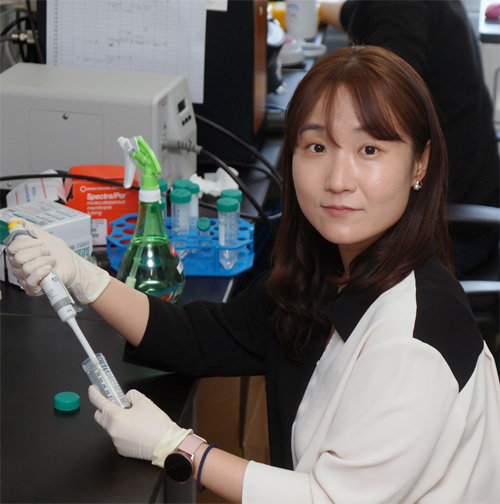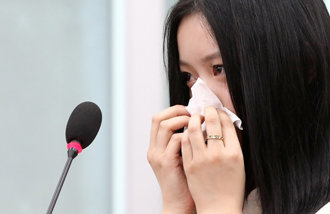Korean scientist develops world’s first coated needle preventing blood loss
Korean scientist develops world’s first coated needle preventing blood loss
Posted March. 27, 2020 07:34,
Updated March. 27, 2020 07:34

“Every material scientist has an area of application in their heart. For me, it was medical science.”
The Dong-A Ilbo met Shin Mi-kyung, 33, professor of Global Biomedical Engineering at Sungkyunkwan University (SKKU), for an interview at her office in the Suwon campus on Tuesday. She seemed like an engineer by nature, who finds joy in making something useful that does not exist in the world. Shin said she always liked making things.
Professor Shin is a rising scholar in the field of biomedical materials science. She claimed the International Rising Talent Award at the 22nd L’Oréal-UNESCO for Women in Science Awards in February. The award is given to 15 rising female scientists in recognition of their scientific accomplishments or public contribution. Earlier in 2018, Shin won the 17th L’Oréal-UNESCO for Women in Science Korea Fellowship hosted by L’Oréal Korea and the Korean National Commission for UNESCO.
While she was a PhD candidate at KAIST, she drew attention by developing the world’s first self-sealing hemostatic needles that completely prevent blood loss. Everyone bleeds after needle injections, while bleeding could be dangerous to some children, and patients with hemophilia or diabetes.
Shin came up with the idea of a coated needle that does not leave a puncture wound on the skin. She coated the surface of the needle with keto acid mixed with catecholamine found in mussels. After many experiments, she found the optimal time when polymers are properly tangled to coat the needle, developing the world’s first coated needle in 2016. A follow-up study is underway with the lead of Shin’s academic advisor Lee Hae-shin for the commercialization of the coated needle.
“I’m interested in materials that benefit people around the world,” said Shin, adding she wants to develop highly practical materials doctors can put to use in the field. Shin is currently focusing on developing adhesive biomaterials from plants. One of them is tannin, which gives bitter taste in fruit peels and seeds.
Tannin is a biomaterial that is being actively studied these days, drawing much attention. Professor Shin is one of the pioneers, who have been studying the material since 2015. Shin is developing a technology, where a ball of tannin and protein is mixed with the medicine for cardiovascular disease and injected into human’s body. “Tannin easily finds its way to the heart inside the body although how it works hasn’t been revealed,” said Shin.
ashilla@donga.com
Headline News
- US approves supply of landmines to Ukraine
- Democratic Party moves to impeach prosecutors over non-indictment of first lady
- Record job losses for workers in 40s highlight economic struggles
- Myung suspected of arranging meetings during South Gyeongsang trip
- Guardians’ Stephen Vogt wins AL Manager of the Year







